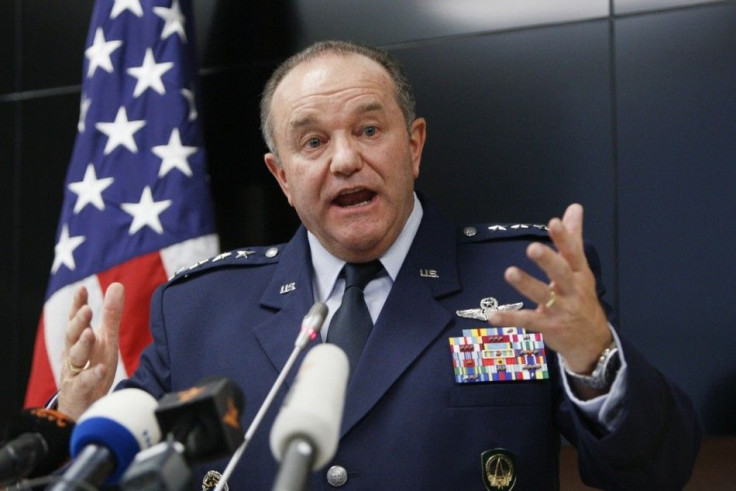US Rethinking Policy Towards Russia As Ukraine Calls For Military And Financial Aid

Western economic sanctions have not deterred Russia’s stance on the separatist insurgency in eastern Ukraine. Almost a year after Moscow launched its military campaign in Ukraine, the United States is now reconsidering its policy.
U.S. officials have acknowledged that the sanctions imposed on Russia over its intervention in Ukraine along with plunging oil prices have done nothing to prompt the Kremlin to stop its intervention. A senior official in the Obama administration said the costs of sanctions were not high enough for the Russian government to rethink their actions, reports the Wall Street Journal.
As U.S. Secretary of State John Kerry travels to Ukraine to meet the President Petro Poroshenko and other officials, U.S. policy makers are rethinking their decision not to send weapons to Ukraine. Jen Psaki, a spokesperson for the U.S. State Department, had declined to say whether Kerry would offer U.S. aid to Ukraine. She only revealed that Kerry will be travelling to Ukraine to discuss progress including economic reforms and efforts to “de-escalate” the situation on the ground.
However, more U.S. officials continue to argue that economic sanctions should be combined with robust security assistance. The renewed debate on whether the U.S. should provide military aid to Ukraine suggests that the Obama administration may be reassessing its policy towards Russia, according to WSJ.
Reuters reports that European governments will be convening next week to review the sanctions. The Western countries' response to the annexation of Crimea and Russia’s support of separatists in eastern Ukraine began with financial and travel restrictions before deciding to cut off international funds to corporate Russia.
Chris Weafer, senior partner at Moscow’s Macro-Advisory Council, said Russia’s economy took a big hit when oil prices dropped but Western sanctions hurt it more. According to data from Thomson Reuters, Russian companies sold only eight foreign currency bonds last March compared to 52 bonds in the 12 months before sanctions were imposed.
Meanwhile, Ukraine has asked for more financial and military support. A team from the International Monetary Fund is expected to arrive in Kiev in an effort to negotiate a bailout to prevent Ukraine’s economy from collapsing. The possibility of more military support will be discussed when the U.S. Secretary of State arrives, reports The Guardian.
Ukraine’s currency performed poorly in 2014 and economists expect it to fall even further within the week. Foreign Minister Pavlo Klimkin told media that the meeting with IMF would hopefully result in a bailout package.
Aside from financial aid, Klimkin said Ukraine is in desperate need of hi-tech radio, radar and reconnaissance equipment to help soldiers improve efficiency in the battlefield. “We can’t win the war against Russia.. But we need to counter the aggression,” said the foreign minister. Ashton Carter, U.S. President Barack Obama’s nominee to lead the Pentagon, has signaled his intention to push the U.S. to take a more aggressive military policy and provide weapons to the Ukrainian government.
To report problems or leave feedback on this article, contact: r.su@ibtimes.com.au





















